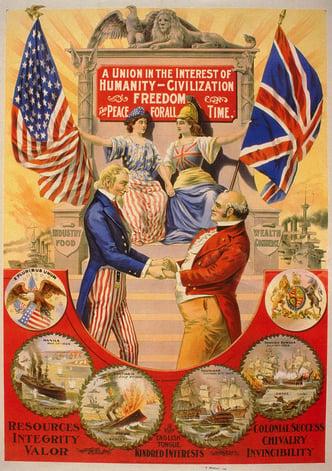Around the turn of the millennium, US writers and journalists began using Britishisms such as “in the run-up,” which was previously rare in the US. This phrase quickly gained traction, with its usage increasing by 50% between 2000 and 2005, according to Google Ngrams. It wasn’t an isolated case. Over the next few years, more British expressions appeared in American English.
For example: some Americans say "cheeky" to denote impudence, "gutted" to mean "disappointed" and "early days" to mean that a process is just beginning.
However, although words and expressions often cross the Atlantic in both directions, the exchange remains limited, keeping American and British English distinct.
Paul Baker, an English Language professor at Lancaster University, analysed data for his study American and British English: Divided by a Common Language (2018), showing that despite some overlap, the two versions mostly maintain their uniqueness.


Copyright by the Donaldson Litho Co. - https://www.loc.gov/pictures/resource/cph.3f05745/ https://www.loc.gov/pictures/item/99472459/ Public Domain

